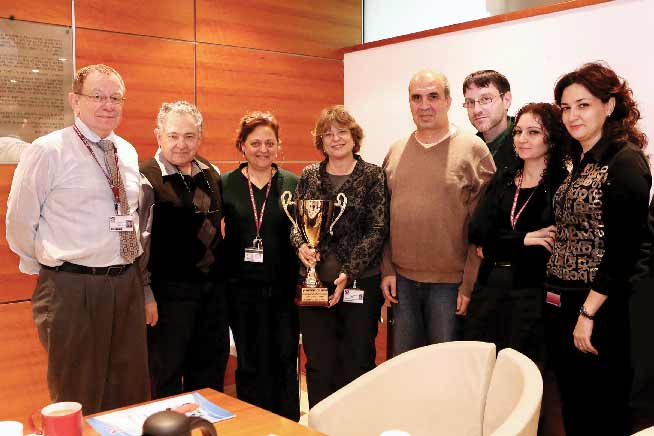
Rambam Hospital in Haifa has won the ‘Oscar’ of the Israeli computing world for a program it has developed that can manage hospitals during a time of emergency. The “e-mergency” advanced information and control system, which won the 2012 Outstanding Project Award at the highly acclaimed ‘IT Awards’ competition in Israel, enables hospital staff to move from a ‘routine’ to ‘emergency’ state as quickly and as efficiently as possible.
As the first system of its kind in Israel, the “e-mergency” program’s purpose is to enable the hospital’s leadership to make intelligent decisions based on an integrated flow of information received in real time. The system automatically reports on crucial aspects of hospital functioning such as excess demand and bottlenecks, indicating the number of blood portions on hand or the number of available operating theaters. Simultaneously, it controls security cameras, disseminates e-mail and SMS notifications, and runs the public address system. It also automatically documents all developments and decisions in a computerized events journal that will enable production of an investigative report and the drawing of conclusions after the event.
With the capability of leading decision makers through pre-designed processes for every possible scenario, the system has the potential to revolutionize emergency medical care, Since this is unfortunately becoming an increasingly important consideration in Israel, the program has awakened widespread interest. In fact, the Emergency Branch of Israel’s Ministry of Health, has already expressed the intention of purchasing it.
“Our aim is to facilitate Rambam Hospital’s work during a real emergency and to enable decision-making on the basis of changing data, under optimal conditions,” explains Ms. Sara Tzafrir, of the Division of Information Technology & Communication Services at Rambam Hospital. “This system can certainly help the hospital staff to cope with tough scenarios and enable the best care possible under these circumstances. It may even save lives.”